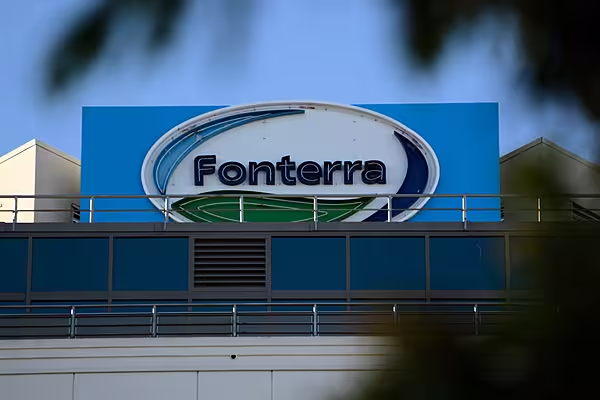Cargill Inc., the U.S. agricultural giant, posted a fourth-quarter adjusted operating loss of $19 million partly because of wrong-way bets in soybean markets. Revenue in the full year fell 11 percent after commodity prices dropped and the dollar strengthened.
Adjusted profit in last year’s fourth quarter was $230 million, Minneapolis-based Cargill said Wednesday in a statement. Net income in the three months ended May 31 was $15 million, compared with a $51 million loss a year earlier stemming from asset impairments and costs related to Venezuela’s currency. Sales in the quarter fell 5 percent to $27.1 billion, the company said.
A loss in the origination and processing segment was related to the rally in soybeans in April and May, “which worked against our view of the market,” spokeswoman Lisa Clemens said in a telephone interview. Results were “negatively affected” by trading and timing in oilseed processing, she said. The industrial and financial-services segment recorded a loss mainly because of an adjustment for “counterparty risk in ocean shipping,” and the energy businesses had “a small loss,” Cargill said.
In 12 months ended May, “trading activities yielded mixed results, in part due to low volatility in agricultural commodity markets for most of the fiscal year,” Cargill said in the statement. “Stalled growth in several emerging economies also affected earnings.”
The counterparty risk in shipping was related to “depressed dry bulk markets,” weak demand and an oversupply of ships, Clemens said. She declined to specify what led to the loss in energy and cited “challenging markets.”
The 151-year-old company has a diverse range of businesses including grain trading and livestock processing. Cargill has been reshaping its portfolio in the past year. The Black River Asset Management investment unit has been broken up and spun off, while the U.S. pork business was sold to Brazil’s JBS SA. Cargill also bought Archer-Daniels-Midland Co.’s chocolate business and a salmon-feed producer.
“We made important changes, adding capabilities essential to our customers’ success,” Chairman and Chief Executive Officer David MacLennan said in the statement. “This includes more than $3 billion in strategic acquisitions and new or expanded facilities, as well as nearly $2.4 billion in divestitures. These moves are making us more competitive in sectors where we intend to lead.”
In the full year, adjusted operating profit fell 15 percent to $1.64 billion. Net income rose 50 percent to $2.38 billion.
News by Bloomberg, edited by ESM. To subscribe to ESM: The European Supermarket Magazine, click here.














